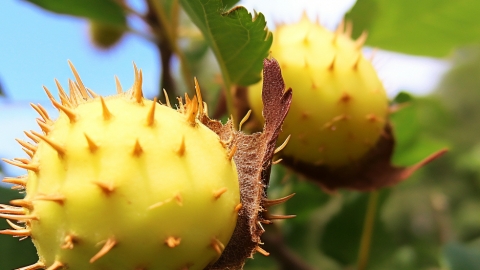What are the functions and benefits of dried Rosa roxburghii fruit?
Generally, as a common dried fruit ingredient, dried rose hip has various functions and benefits, mainly including supplementing vitamin C, promoting digestion, assisting antioxidant activity, stimulating saliva production to relieve thirst, and providing minerals. The details are as follows:

1. Supplementing Vitamin C: Dried rose hip is rich in vitamin C, with content far higher than most fruits. This component provides sufficient nutrition for the body, participates in multiple metabolic processes, helps maintain the normal function of skin and mucous membranes, and is suitable for daily consumption by individuals needing vitamin C supplementation.
2. Promoting Digestion: Dried rose hip contains abundant dietary fiber, which can stimulate intestinal peristalsis, accelerate the digestion and absorption of food in the gastrointestinal tract, improve indigestion and bloating, help soften stools, relieve constipation, and reduce the burden on the gastrointestinal system.
3. Assisting Antioxidant Activity: The vitamin C and polyphenols in dried rose hip have certain antioxidant properties, helping to remove excess free radicals in the body, reduce cellular damage caused by free radicals, delay skin aging to some extent, and provide auxiliary protection for the health of body tissues.
4. Stimulating Saliva Production to Relieve Thirst: Dried rose hip retains the sour-sweet taste of fresh rose hip. Consumption can stimulate saliva secretion, effectively alleviating discomfort such as dry mouth and throat dryness and itchiness, making it especially suitable for consumption during dry seasons or when water intake is insufficient, helping maintain oral moisture.
5. Supplementing Minerals: Dried rose hip contains various minerals such as potassium, magnesium, and calcium. Potassium helps maintain the body's electrolyte balance, while magnesium participates in energy metabolism. These minerals provide basic nutritional support for the body, aiding in maintaining normal physiological functions.
When consuming dried rose hip, it is important to control the amount consumed, as its sugar content is relatively high. Excessive consumption may lead to excessive sugar intake; diabetic patients should consume it in moderation according to their individual conditions and maintain oral hygiene after consumption to avoid residual sugar.





